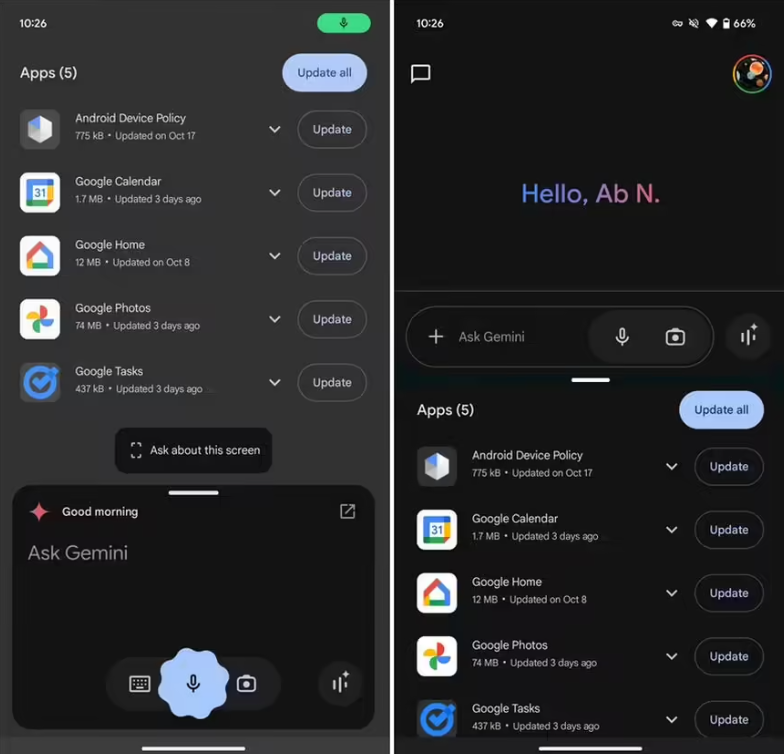Google is actively expanding the split-screen function of its AI assistant Gemini, aiming to bring a more convenient AI interactive experience to more Android users. This feature, originally limited to Samsung-specific models, has now expanded to more Samsung devices, Google Pixel tablets, and the upcoming Pixel 9 Pro Fold, marking Google's significant progress in building the AI ecosystem. The new version update also brings more intuitive interface control, and users can easily drag the center handle for split-screen operation, greatly improving the efficiency of multi-task processing.
Google is promoting the split-screen function of its AI assistant Gemini on a large scale, allowing more Android devices to enjoy a more convenient AI interactive experience. Previously, this feature was only supported on the Samsung Galaxy Z Fold6 equipped with One UI6.1.1 system.
According to multiple sources, Gemini's split-screen function has now covered a wider range of devices, including Samsung's Galaxy Tab series tablets, early Galaxy Z Fold foldable phones, Google's own Pixel Tablets, and the upcoming Pixel9Pro Fold and other products. .

A highlight of this update is the addition of smarter interface control elements. A centered handle has been added to the top of the Gemini chat interface, and users can achieve split-screen operation with other applications just by simply dragging it. Whether it is parallel left and right or left split screen, it can be switched flexibly. This improvement greatly improves multitasking capabilities, allowing users to call AI assistants at any time while browsing content, improving usage efficiency.
The widespread deployment of this feature marks that Google is accelerating the ecological construction of its AI assistant and bringing a more convenient artificial intelligence experience to users of different types of Android devices. By seamlessly integrating AI assistants and daily application scenarios, Google is redefining how mobile devices are used and creating a new paradigm for intelligent interaction.
Compared with the early testing stage that was limited to a single model, the comprehensive promotion of this feature will allow more users to experience the convenience brought by AI assistants, and also demonstrate Google's determination to continue to innovate in the field of AI. With the continuous increase in supporting devices, more users are expected to benefit from this intelligent upgrade.
The expansion of Gemini's split-screen function not only improves the user experience, but also indicates the strategic direction of Google's continued investment in the field of AI. In the future, as technology continues to mature, I believe that Gemini will bring users a smarter and more convenient AI interaction method.